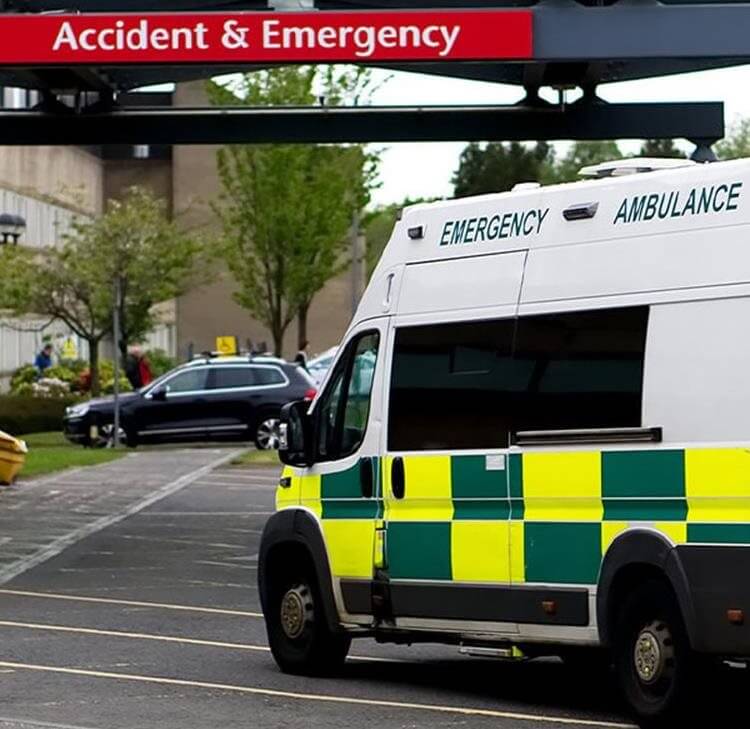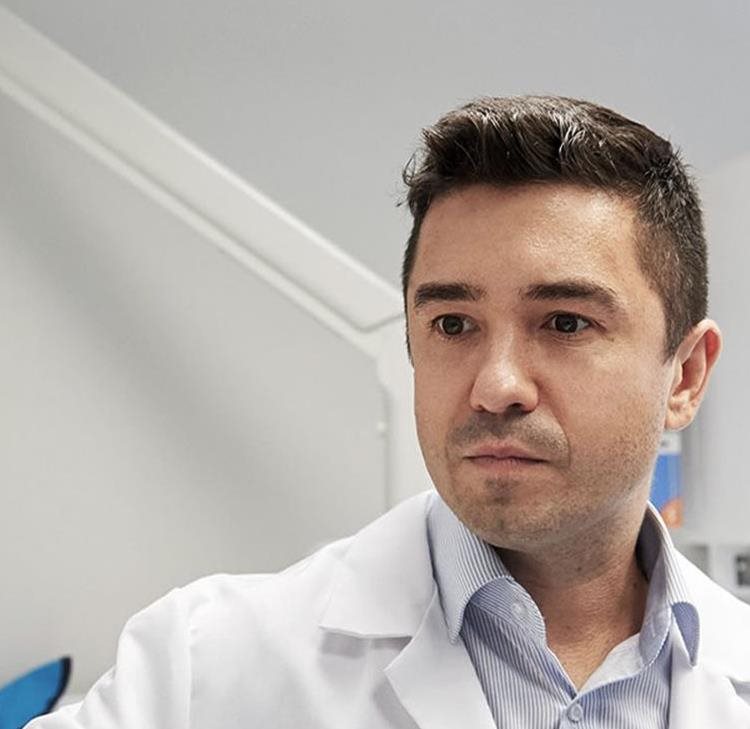The cost of this course is £55.00+VAT per module or £275.00+VAT for all 6 modules.
This is an important training course for practising clinicians and any health and care professionals who would benefit from understanding the inquest process, including social workers and those working in clinical governance, patient safety and risk, complaints, family liaison and in-house legal teams.
This virtual training course will provide essential knowledge, tools and insights delivered by a range of legal experts and includes insights, lectures and mock inquest scenarios involving Dr Nina Lewis, Medical Examiner and six experienced Coroners: Professor Catherine Mason, Senior Coroner for Leicester City and South Leicestershire; Mrs Louise Hunt, Senior Coroner for Birmingham; Mr Zak Golombeck, Area Coroner for Manchester City; Miss Louise Pinder, Assistant Coroner for Derby and South Derbyshire; Mr Ian Dreelan, Assistant Coroner for Birmingham and Dr Robert Hunter, Former Senior Coroner for Derby and South Derbyshire (retired).
The course covers the inquest process from start to finish and provides practical advice and guidance on reporting deaths and certification, writing reports for the coroner and giving oral evidence in court or remotely. It includes several mock in-person inquests and a mock remote inquest hearing to provide a realistic experience of an inquest hearing from opening to conclusion and aims to introduce delegates to best practice when dealing with inquest hearings. The course also considers the wider implications of an inquest for the organisations and clinicians involved, looking at media coverage, compensation claims, disciplinary and professional implications.
The cost of this course is £55.00+VAT per module or £275.00+VAT for all six modules. For delegates who attend three modules or more you will be awarded a certificate at the conclusion of the course.
An invoice for payment of your chosen module(s) will be sent to the email address you specify in the registration form. Please note, if full payment is not received prior to the module date you will not receive your joining link.
All modules are recorded to allow flexibility so that, if you are unable to attend on the day, you will be able to watch the module at your convenience around your clinical or other commitments.
If you wish to cancel your place, 4-weeks’ notice is required for a full refund. We are however, able to transfer your place to a colleague at any stage if requested.
Register nowAgenda
Tuesday 13 February 2024, 12pm – 1.45pm
This session will be delivered by Simon Tait, Partner at Browne Jacobson, Nicola Evans, Partner at Browne Jacobson and Dr Nina Lewis, Medical Examiner for Nottingham Medical Examiner Service.
During the session, Dr Lewis will take you through the law on reporting and certification of deaths including the role of the Medical Examiner and the process for referring deaths to the Medical Examiner and the Coroner.
Simon Tait will then provide an overview of the inquest process and an introduction to Coronial law.

Tuesday 27 February 2024, 12pm – 1.45pm
This session will be delivered by Mr Zak Golombeck, Area Coroner for Manchester City, Kathryn Fearn, Director of Legal Services at Nottingham University Hospitals NHS Trust and Nicola Evans, Partner at Browne Jacobson.
During the session, Nicola and Kathryn will deliver a practical session full of hints and tips for writing your report to the Coroner. We will also hear from Mr Golombeck with guidance for witnesses giving oral evidence in court or remotely, to equip you to understand your duties to the court and to give your evidence to the court confidently and compassionately.

Thursday 7 March 2024, 12pm – 2pm
During this session, we will show you a pre-filmed mock inquest both in court and via a mock remote inquest hearing to provide a realistic experience of a hearing from opening to Conclusion. The focus of this session will be on preparing for and attending an inquest hearing – both in-person and remotely. The mock inquest was filmed in a real courtroom before Dr Robert Hunter, former Senior Coroner for Derbyshire.
Simon Tait will then deliver a session on the wider implications of the inquest for the organisations and clinicians involved, looking at media coverage, compensation claims, disciplinary and professional implications.
This module will close with a Q&A session, when delegates will have an opportunity to put questions to a panel including Professor Catherine Mason, Senior Coroner for Leicester City and South Leicestershire and Miss Louise Pinder, Assistant Coroner for Derby and South Derbyshire.

Tuesday 12 March, 12pm – 1.45pm
This module will be delivered by Mark Barnett and Rebecca Fitzpatrick, Partners at Browne Jacobson LLP and leading specialists in mental health law. Both regularly deal with inquests into deaths in a mental health setting. Rebecca also sits as a First Tier Judge in the Mental Health Tribunal.
This module builds on earlier modules but with a focus on issues which are unique to preparing for inquests in a mental health setting. Rebecca and Mark will provide an overview of the relevant Coronial law and will deliver a practical session full of hints and tips for healthcare professionals preparing to give evidence at an inquest where the death involves mental health services.

Tuesday 19 March 2024, 12pm – 1.45pm
This module will be delivered by Mark Barnett, Partner, and Clare Shepherd, Senior Associate at Browne Jacobson. This module builds on earlier modules but with a focus on issues which are unique to preparing for inquests in a local authority setting.
Clare and Mark will provide an overview of the relevant Coronial law and will deliver a practical session full of hints and tips for social workers and care professionals preparing to give evidence at an inquest where the death involves local authority services.

Wednesday 20 March 2024, 12pm – 2pm
This module will be delivered by Nicola Evans and Heather Caddy, who are both Partners at Browne Jacobson. The module builds on earlier modules and includes three pre-filmed mock inquest films based around a fictional maternity case study, which were filmed in a real life court before Mrs Louise Hunt, Senior Coroner for Birmingham and Solihull and Mr Ian Dreelan, Assistant Coroner for Birmingham.
We will explore issues unique to maternity inquests but the module also explores issues of wider application including the importance of good documentation and the impact of culture and team dynamics on patient care.

Tuesday 13 February 2024, 12pm – 1.45pm
This session will be delivered by Simon Tait, Partner at Browne Jacobson, Nicola Evans, Partner at Browne Jacobson and Dr Nina Lewis, Medical Examiner for Nottingham Medical Examiner Service.
During the session, Dr Lewis will take you through the law on reporting and certification of deaths including the role of the Medical Examiner and the process for referring deaths to the Medical Examiner and the Coroner.
Simon Tait will then provide an overview of the inquest process and an introduction to Coronial law.

Tuesday 27 February 2024, 12pm – 1.45pm
This session will be delivered by Mr Zak Golombeck, Area Coroner for Manchester City, Kathryn Fearn, Director of Legal Services at Nottingham University Hospitals NHS Trust and Nicola Evans, Partner at Browne Jacobson.
During the session, Nicola and Kathryn will deliver a practical session full of hints and tips for writing your report to the Coroner. We will also hear from Mr Golombeck with guidance for witnesses giving oral evidence in court or remotely, to equip you to understand your duties to the court and to give your evidence to the court confidently and compassionately.

Thursday 7 March 2024, 12pm – 2pm
During this session, we will show you a pre-filmed mock inquest both in court and via a mock remote inquest hearing to provide a realistic experience of a hearing from opening to Conclusion. The focus of this session will be on preparing for and attending an inquest hearing – both in-person and remotely. The mock inquest was filmed in a real courtroom before Dr Robert Hunter, former Senior Coroner for Derbyshire.
Simon Tait will then deliver a session on the wider implications of the inquest for the organisations and clinicians involved, looking at media coverage, compensation claims, disciplinary and professional implications.
This module will close with a Q&A session, when delegates will have an opportunity to put questions to a panel including Professor Catherine Mason, Senior Coroner for Leicester City and South Leicestershire and Miss Louise Pinder, Assistant Coroner for Derby and South Derbyshire.

Tuesday 12 March, 12pm – 1.45pm
This module will be delivered by Mark Barnett and Rebecca Fitzpatrick, Partners at Browne Jacobson LLP and leading specialists in mental health law. Both regularly deal with inquests into deaths in a mental health setting. Rebecca also sits as a First Tier Judge in the Mental Health Tribunal.
This module builds on earlier modules but with a focus on issues which are unique to preparing for inquests in a mental health setting. Rebecca and Mark will provide an overview of the relevant Coronial law and will deliver a practical session full of hints and tips for healthcare professionals preparing to give evidence at an inquest where the death involves mental health services.

Tuesday 19 March 2024, 12pm – 1.45pm
This module will be delivered by Mark Barnett, Partner, and Clare Shepherd, Senior Associate at Browne Jacobson. This module builds on earlier modules but with a focus on issues which are unique to preparing for inquests in a local authority setting.
Clare and Mark will provide an overview of the relevant Coronial law and will deliver a practical session full of hints and tips for social workers and care professionals preparing to give evidence at an inquest where the death involves local authority services.

Wednesday 20 March 2024, 12pm – 2pm
This module will be delivered by Nicola Evans and Heather Caddy, who are both Partners at Browne Jacobson. The module builds on earlier modules and includes three pre-filmed mock inquest films based around a fictional maternity case study, which were filmed in a real life court before Mrs Louise Hunt, Senior Coroner for Birmingham and Solihull and Mr Ian Dreelan, Assistant Coroner for Birmingham.
We will explore issues unique to maternity inquests but the module also explores issues of wider application including the importance of good documentation and the impact of culture and team dynamics on patient care.

The cost of this course is £55+VAT per module or £275+VAT for all six modules. For delegates who attend three modules or more you will be awarded a certificate at the conclusion of the course.
An invoice for payment of your chosen module(s) will be sent to the email address you specify in the registration form. Please note, if full payment is not received prior to the module date you will not receive your joining link.
All modules are recorded to allow flexibility so that, if you are unable to attend on the day, you will be able to watch the module at your convenience around your clinical or other commitments.
If you wish to cancel your place, 4-weeks’ notice is required for a full refund. We are however, able to transfer your place to a colleague at any stage if requested.
Our speakers

Nicola Evans
Partner

Simon Tait
Partner

Rebecca Fitzpatrick
Partner

Mark Barnett
Partner

Clare Shepherd
Senior Associate

Heather Caddy
Partner

Megan Verity
Barrister (Associate)

Sian Brown
Partner
Contact

Nicola Evans
Partner
Nicola.Evans@brownejacobson.com
+44 (0)330 045 2962









































